The ICPR Americas 2024 Conference will go from Sunday, July 21 to Tuesday, July 25, 2024. There are events planned for each day of the conference, with two days of keynote speakers. Find the keynote information and full agenda below.
Industrial tours are being organized and are an option part of the conference experience.
Conference Schedule
The schedule is subject to change as we approach the closer to the event.
| Hours | Sunday 7/21/2024 | Monday 7/22/2024 | Tuesday 7/23/2024 | Wednesday 7/24/2024 | Thursday 7/25/2024 |
| 8:00 AM | |||||
| 8:30 AM | |||||
| 9:00 AM | Opening Ceremony | Sessions | Industrial Tours | ||
| 9:30 AM | Keynote | Keynote | |||
| 10:00 AM | |||||
| 10:30 AM | Coffee Break | Coffee Break | Coffee Break | ||
| 11:00 AM | Keynote | Keynote | Keynote | ||
| 11:30 AM | |||||
| 12:00 PM | |||||
| 12:30 PM | Lunch | Lunch | Lunch | ||
| 1:00 PM | |||||
| 1:30 PM | |||||
| 2:00 PM | Sessions | Sessions | Sessions | ||
| 2:30 PM | |||||
| 3:00 PM | |||||
| 3:30 PM | Coffee Break | Coffee Break | Coffee Break | ||
| 4:00 PM | Closing Session | ||||
| 4:30 PM | Sessions | Sessions | |||
| 5:00 PM | |||||
| 5:30 PM | |||||
| 6:00 PM | |||||
| 6:30 PM | Welcome Reception | Dinner | Banquet | ||
| 7:00 PM | |||||
| 7:30 PM | |||||
| 8:00 PM |
Keynote Sessions and Speakers
Sustainable Production Research on the Policy Implications of the Global Resources Outlook 2024
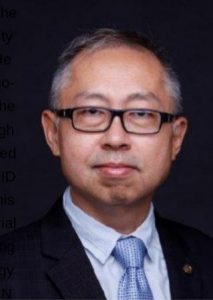
Dr. Anthony Chiu
- President, International Foundation for Production Research
- University Fellow and Adviser to the University President on Sustainability, De La Salle University, Manila, Philippines
- Board Member, DENR Pollution Adjudication Board, Republic of the Philippines
- Panel Member, United Nations International Resource Panel
Abstract
On March 1, 2024 the International Resource Panel officially launched the Global Resources Outlook (GRO) 2024 at the United Nations Environment Assembly (UNEA-6) in Nairobi, Kenya UNEP headquarter. It is now clear that the role of the sustainable production research became foremost important in the coming years of the remainder of the Sustainable Development Goals (SDG), given that only 15% were achieved since 2015. This talk will focus on nine policy implications of the GRO 2024, and correlates the production (and consumption) patterns to the triple planet crisis; namely: climate change, biodiversity, and pollution. Implications indirectly call for attention in addressing eco-efficiency, productivity, quality utility function, optimal value chain, improved logistics, AI, Industry 4.0 and Industry 5.0, and stronger connectivity of ethical engineering service to quality of life, equity and well-being. The findings of the GRO2024 has many policy options that aligns well with a good performance of production system. Thus, production researchers have a major role to play in the transition to a sustainable future.
Biography
Anthony (Shun Fung) Chiu has Doctor of Business Administration and Bachelor of Science in Mechanical Engineering degrees from De La Salle University in Manila as well as of Master of Engineering Major in Industrial Engineering from the Asian Institute of Technology in Bangkok.
Dr Chiu is a specialist in the field of industrial engineering, resource efficient and cleaner production, sustainable consumption and production, and eco-industrial development. He is currently a University Fellow and Professor at the Gokongwei College of Engineering, De La Salle University. He is a Philippine delegate to the United Nations ESCAP Roadmap for 2030 Agenda as well as in Rio+20 Summit, CSD19, and UNCRD 3R Forum. Dr Chiu also serves several international professional entities as President (APRSCP, ISBITM, APIEMS), senior executive (ISIE, IFPR), and editor in chief of Elsevier journal Cleaner and Responsible Consumption. Professor Chiu is the first Philippine awardee of the American Society of Mechanical Engineers as outstanding international correspondent, and a first Philippine academe recipient of the ASEAN Engineer in the field of Industrial Engineering. Dr. Chiu received 2018 National Research Council of the Philippines Engineering Achievement Award and 2020 National Academy of Science and Technology Environmental Science Award Special Citation.
Meta-Manufacturing Systems Architectures with Large Natural Language Models and AI Algorithms
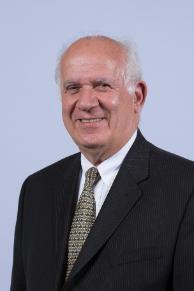
Dr. Cihan Dagli
- Professor of Engineering Management and System Engineering, Missouri University of Science and Technology, Rolla, Missouri, USA
- Founder and Director of Systems Engineering Graduate Program
Abstract
Multi-faceted systems of the future will entail complex logic and reasoning with many levels of reasoning in intricate arrangement. The organization of these systems involves a web of connections and demonstrates self-driven adaptability. They are designed for autonomy and may exhibit emergent behavior that can be visualized This is also true for globally integrated manufacturing systems of today and the very near future. They are mission based many objective complex adaptive systems with dynamically changing meta-architecture. Manufacturing systems solutions is a system of systems solution that needs the creation of meta-architectures integrated with digital engineering capabilities. In this talk the possible use of Large Natural Language Models like ChatGPT and Deep Learning AI Algorithms will be discussed based on the current experiences gained in health care from the development of a prototype type digital twin that generates meta-architecture real time for each organ donated that uses digital engineering threads to assess translatability of the donated organ using deep learning AI models and negotiating with transplant surgeons
Biography
Dr. Dagli is a Professor of Systems engineering and Engineering Management. He is the founder of Missouri S&T’s Systems Engineering Graduate Program. He is also director of the Smart Engineering Systems Lab (SESL) at the Missouri S&T. He is Senior Investigator in DoD Systems Engineering Research Center-URAC. Dr. Dagli is a fellow of International Council of Systems Engineering INCOSE 2008 and Institute of Industrial Engineers IIE 2009 and International Foundation of Production Research 2019.Dr. Dagli joined Missouri S&T in 1988. His research interests are in systems engineering and systems architecting, cyber physical systems, deep learning, machine learning and computational intelligence. Dr. Dagli has published over 450 research publications, including 84 archival journal articles, and edited (or co-edited) 35 books. His research publications have been cited on Google Scholar 6140 times, with an h-index of 38 and i-index of 147. He was the dissertation advisor of 26 Engineering Management one Computer Science and 13 Systems Engineering PhD students received their degree from S&T.
Energy 4.0: The Role of Digitalization and AI to Transform Energy Management Practices
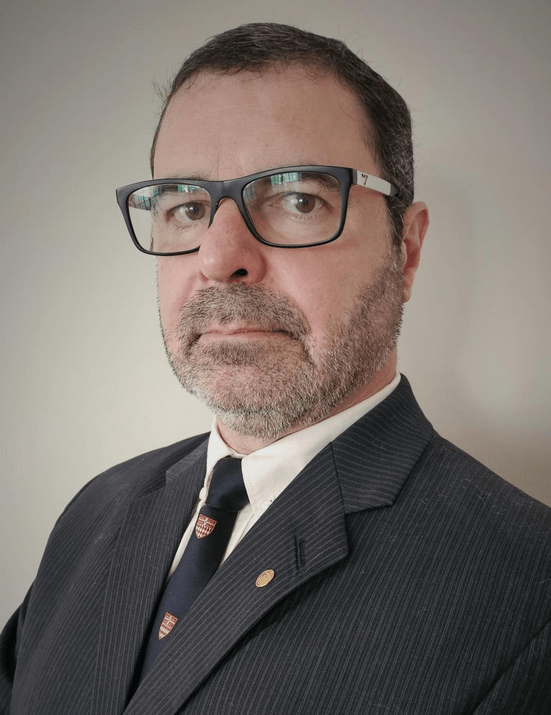
Sergio E. Gouvea da Costa
- Professor, Universidade Tecnológica Federal do Paraná, Brazil, Industrial and Systems Engineering Graduate Programa
- Senior Investigator at the National Council for Scientific and Technological Development
Abstract
Industries are grappling with a multitude of challenges, including soaring energy prices, the impacts of climate change, and increasing societal pressures. Consequently, they are reevaluating their strategies for energy management. Energy management not only facilitates improved energy efficiency – meaning less energy is used to maintain the same level of production – but it also has the potential to bolster a company’s environmental credentials and reputation. Enhancing energy efficiency aligns with the objectives outlined in the 7th Sustainable Development Goal.
In this context, digital technologies and AI are being deployed within factories to optimize their energy systems. This involves analyzing vast quantities of energy data generated by machines and processes, as well as real-time monitoring of systems to enable swift intervention when necessary. This presentation will provide insights into the current landscape of energy management practices in industrial settings, alongside an exploration of the digital technologies and AI underpinning these efforts and their practical applications. Additionally, the talk will delve into future research trends in this field and showcase real-life case studies from companies that have implemented effective energy management strategies.
Biography
Sergio E. Gouvea da Costa has a Ph.D. degree in Engineering (Production) from Universidade de São Paulo (USP), a Master in Electrical Engineering (Automation) from Universidade Estadual de Campinas (UNICAMP) and a Bachelor of Science in Electrical Engineering from Universidade Tecnológica Federal do Paraná (UTFPR), all in Brazil. He is now a University Professor at Universidade Tecnológica Federal do Paraná, working in the Electrical Engineering Department and the Production and Systems Engineering Graduate Program. He has been a Senior Investigator at the National Council for Scientific and Technological Development – Brazil (CNPq) since 2006. He was President 2017-2020 of the National Association of Graduate Programs and Research in Production Engineering (ANPEPRO, Brazil), Vice President – Americas 2014-2016 of the Production and Operations Management Society (POMS, USA), Secretary General 2011-2013 and President 2013- 2015 of the International Foundation for Production Research (IFPR), and member of the 2010-2013 Board of Directors of the Society for Engineering and Management Systems of the Institute of Industrial and Systems Engineers (SEMS/IISE, USA). His research focus mainly on the following topics: operations strategy (manufacturing and services), energy management, sustainable operations, applications of decision support methods, and digital transformation. He has authored more than 115 papers published in peer-reviewed journals, and over 35 book chapters, and 250 conference papers. He has graduated several Ph.D. and MSc. Students. In 2017 Dr. Gouvea da Costa received the Honorable Mention of the Brazilian Association of Production Engineering (ABEPRO) for his contribution to the field of Production Engineering in Brazil.
Scheduling in Batch Process Industries: Achievements, Emerging Challenges and Opportunities

Dr. Gabriela Henning
- Professor, Institute for Technological Development of the Chemical Industry, Industrial Engineering Department, Universidad Nacional del Litoral, Argentina
Abstract
Industrial scheduling is one of the most burdensome operational activities faced by engineers nowadays. Batch process environments add extra challenges to this problem, such as (i) the difficulties of dealing with non-discrete products that, in many cases, require the consideration of mass balances; (ii) the many different and varying operational features that need to be taken into account – distinct types of plants and processing units, diverse intermediate storage and waiting policies, campaign operating modes, sequence-dependent changeover times, etc. – ; (iii) the need to convert primary requirements for products into individual batches (batching), among others. The first part of this talk will discuss these additional defies in detail and will present the main methodologies that academia has proposed to tackle them.
At present, the academic community is able to face more difficult and larger scheduling problems than those addressed two decades ago. Despite these advances, the lack of academic permeation in industry is clearly noticeable. Unquestionably, there are features that prevent academic developments to turn into software products that are accepted in industry. The second part of this talk will attempt to reveal these features and will make a critical analysis of the academic developments, bringing up some ideas to be exploited in the near future in order to close the current academia-industry gap. Since the ultimate goal would be to turn a scheduling methodology into the core component of a scheduling support application, the analysis will be conducted from the perspective of a software development process.
Biography
Gabriela Henning obtained a Chemical Engineering degree from Universidad Tecnológica Nacional, Argentina, and a Ph.D. degree from Universidad Nacional del Litoral (UNL), Argentina. She was a Postdoctoral Fellow at the Laboratory for Intelligent Systems in Process Engineering of the Massachusetts Institute of Technology. Currently Dr. Henning is a Full Professor at the Industrial Engineering Department of UNL. She also holds a Principal Scientific Researcher position at CONICET (National Council for Scientific Research and Development of Argentina). She presently does research activities at the Institute for Technological Development of the Chemical Industry (INTEC), which depends on both, CONICET and UNL.
Between September 2013 and September 2023, Dr. Henning was the Director of INTEC. She was also the Director of the Graduate Studies Program and Human Resources Formation Program of UNL (2004-2006), and the Head of the Department of Industrial Engineering of this University (2000-2004). She has organized several national and Latin-American graduate schools and workshops, and also served on the organizing and scientific committees of various national and international conferences. Dr. Henning presently serves on the Editorial Board of various scientific journals and on several evaluation and accreditation national boards.
Her research interests are in the areas of planning, scheduling, and rescheduling of batch, continuous and discrete manufacturing processes; supply chain modeling, optimization and evaluation; enterprise modeling and integration; product modeling within the framework of industrial information systems and industrial domain ontologies. She has authored more than 70 papers published in peer-reviewed magazines and book chapters and has graduated several Ph.D. students. In 2010 she was the recipient of the Gambrinus Fellowship award of TU Dortmund, Germany, for distinguished foreign Professors. She has been involved in consulting activities with several national companies and NGOs.
Fostering manufacturing competitiveness by complementing human skills and emerging digital technologies: an Industry 5.0 perspective
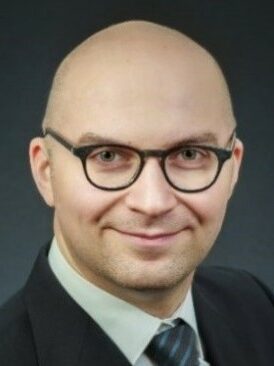
Dr. Djerdj Horvat
- Researcher and Project Manager, Fraunhofer Institute for Systems and Innovation Research ISI, Karlsruhe, Germany
Abstract
While Industry 4.0 has gained significant attention due to its focus on process optimization, as well as its ability to enable novel value propositions and business models (through e.g., servitization), there has been a noticeable oversight regarding the crucial role played by human resources within manufacturing systems. Addressing this gap, a human-centric Industry 5.0 perspective has emerged in the literature, driven by the necessity to leverage the distinct competences and creativity of humans and integrate it seamlessly with powerful, smart, and precise machinery, including collaborative robotics, AI solutions, etc. However, despite the potential of Industry 5.0 strategies, there is insufficient empirical evidence on how the synergy between competent human resources and emerging technologies can foster the innovativeness and competitiveness of manufacturing companies.
This keynote presentation starts with Industry 5.0’s human-centric organizational approach and its operationalization, emphasizing the integration of human intelligence, creativity, and skills with emerging digital technologies such as artificial intelligence, intelligent robotics, and cyber physical systems. Additionally, the talk introduces the European Manufacturing Survey as a relevant and representative dataset for researching the modernization of manufacturing companies. Second, the keynote elaborates on three empirical studies examining the effects of human-centric I5.0 orientation on the innovation, servitization, and sustainability performances of manufacturing companies. These studies provide valuable insights into the impacts of complementing human competences and emerging technologies in manufacturing companies. The presentation closes with offering a forward-looking perspective, proposing avenues for future research in this evolving domain.
Biography
Dr. Djerdj Horvat is a specialist in the field of industrial innovation and technology-related strategies. He completed his Ph.D. on the transnational innovation activities of manufacturing companies at the Freie Universität in Berlin. He is employed as a senior scientist and research project manager at the Fraunhofer Institute for Systems and Innovation Research ISI in Karlsruhe, Germany, in the Business Unit Industrial Change und New Business Models.
Dr. Horvat is recognized in the international community of production research for his holistic socio-technical concepts of readiness and maturity analysis for various advanced manufacturing technologies, such as AI, intelligent robots and industrial platforms. He is also acknowledged for his empirical studies on the effects of those technologies on manufacturing companies’ innovativeness and competitiveness. Parallel to his work at Fraunhofer ISI, Dr. Horvat regularly gives lectures on international innovation and technology management-related topics at various universities in Germany and abroad.
AirForce Challenges in Production Research (or, “I’ll never run out of things to do.”)
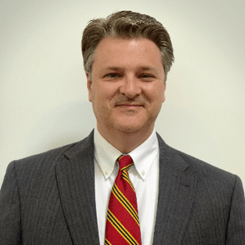
Brench Boden
- Sr. Technical Advisor, Digital Enterprise, Manufacturing & Industrial Technologies Division, AFRL Materials & Mfg Technology Directorate
Abstract
The DoD faces extraordinary constraints as it attempts to navigate a rapidly changing world. Efforts to address the dynamics of a “great power competition” are constantly impacted by large forces such as a shrinking industrial base, an insufficiently digital-ready workforce, sustainment of aging systems, and pressures to embrace digital transformation across the enterprise. The implications for defense production are numerous and challenging: how do we bring new capability to the battle in a fraction of the traditional timespan? Are we prepared to surge with a shrinking industrial base? This presentation will introduce a few of the many challenges facing the department, and highlight ways the Air Force Research Laboratory’s Manufacturing Technology Program plans, collaborates, and invests to facilitate a future where production remains a powerful differentiator.
Biography
Brench Boden is the senior technical advisor for Digital Enterprise in the Air Force Research Laboratory Manufacturing Technology Program. His responsibilities include strategic planning, technology roadmapping, and program development across a diverse technical spectrum focused on driving earlier analysis of producibility into systems engineering practice, digital engineering of acquisition and support analyses to impact AF weapon system programs, and elevation of digital posture of suppliers in the industrial base. He is an original author of the AF Digital Thread vision and was formerly Chief Technology Officer for the Digital Manufacturing and Design Innovation Institute (now MxD, where he is
currently the Govt Technical Advisor). He advises numerous AF and DoD organizations and Industry groups on digital transformation.
Brench is the twice former chair of the Advanced Manufacturing Enterprise Subpanel under the Joint Defense Manufacturing Technology Panel, and former co-chair of the Advanced Manufacturing Engineering Committee under the NDIA Manufacturing Division.
Recent Announcements
-
Presentation template and guidelines
July 9, 2024The presentation template in PowerPoint is published on the web site. Also, guidelines for the presenters are also there.
See: https://www.ifpr-icpra2024.org/presentation-guidelines/
-
Final paper submission and Early-bird registration
June 9, 2024Reminder for all participants:
- Final paper submission due date with grace period is June 14, 2024, submit to https://www.easychair.org/my/conference?conf=icpramericas2024
- Early bird registration cut-off date is June 14, 2024, register at https://www.ifpr-icpra2024.org/registration/
-
On-Campus accommodation – Dates corrected
May 22, 2024The correct dates are presented for On-campus room reservation. Now, the registrants can reserve the rooms.
-
Online Registration page posted
May 21, 2024Online registration page (payment by credit card) has been linked to the site. See https://www.ifpr-icpra2024.org/registration/ for information and the link.
Tutorials and Workshops
Tutorial
Advances in Intelligent Techniques for Robot-based Assembly Line and Scheduling Problems
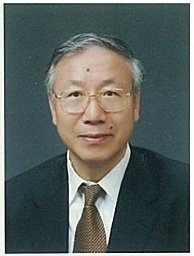
Dr. Mitsuo Gen
- Fuzzy Logic Systems Institute and Tokyo University of Science, Japan
Abstract
Automation with robots is a very useful of various control systems 7such as computers to control industrial machinery and processes, replacing human operators. Automation plays an increasingly important role in the global economy and in daily experience. Engineers strive to combine automated devices with mathematical and organizational tools to create complex systems for a rapidly expanding range of applications and human activities. In the real-world of automation systems, there are many combinatorial optimization problems (COPs) imposing on more complex structure, nonlinear constraints, multiple objectives and uncertainty. The COPs make the problem intractable to the traditional approaches because of NP-hard ones. Evolutionary Technique (ET) has received considerable attention regarding their potential as novel optimization techniques. There are three major advantages when applying ET to design automation. There are three major advantages when applying ETs to design automation. Adaptability, Robustness, and Flexibility.
In this talk, multiobjective AGV (MoAGV) dispatching in Flexible Manufacturing System (FMS) and multiobjective robot-based assembly line (MoR-ALB) models with recent advances by Evolutionary Technique will be introduced [1~5]. Many applications of automation, such as optimizations and automatic controls, are formulated with complex structures, complex constraints, and multiple objects simultaneously, which makes the problem intractable to traditional approaches. The experimental results demonstrate the effectiveness of the proposed ET algorithms comparing to classical multi-objective genetic algorithms.
Biography
Mitsuo Gen received his PhD in Engineering from Kogakuin University, PhD degree in Informatics from Kyoto University and is now Senior Research Scientist at FLSI and Visiting Prof. at TUS. He was faculties at Ashikaga Institute of Tech. for 1974-2003, at Waseda Univ. for 2003-2010. He was visiting faculties at Univ. of California at Berkeley for 1999.8-2000.3, Texas A&M Univ. for 2000.1-3 & 2000.8-9, Hanyang Univ. in S. Korea for 2010-2012 and National Tsing Hua Univ. in Taiwan for 2012-2014. His research field is Evolutionary Computation, Manufacturing Scheduling and Logistics Systems. He is a coauthor of the following books: Genetic Algorithms and Engineering Design, 1997 and Genetic Algorithms and Engineering Optimization, 2000, John Wiley & Sons, New York; Network Models and Optimization: Multiobjective Genetic Algorithm Approach, 2008 and Introduction to Evolutionary Algorithms, 2010, Springer, London.
Workshop
Digital Twinning for Advanced and Conventional Manufacturing Processes: Digital Transformation to Unlock Supply Chain Potentials
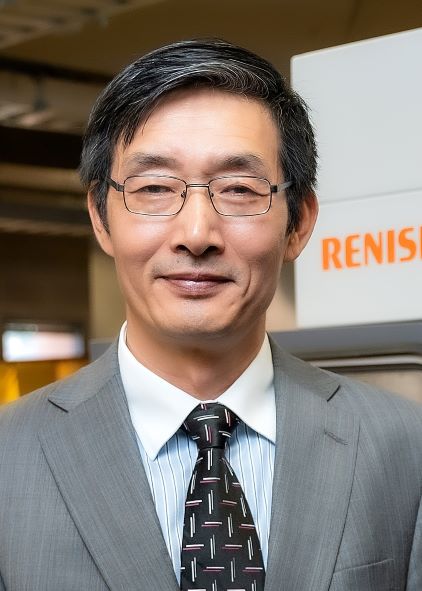
Jianzhi (James) Li
- America’s Additive Foundry, The University of Texas Rio Grande Valley
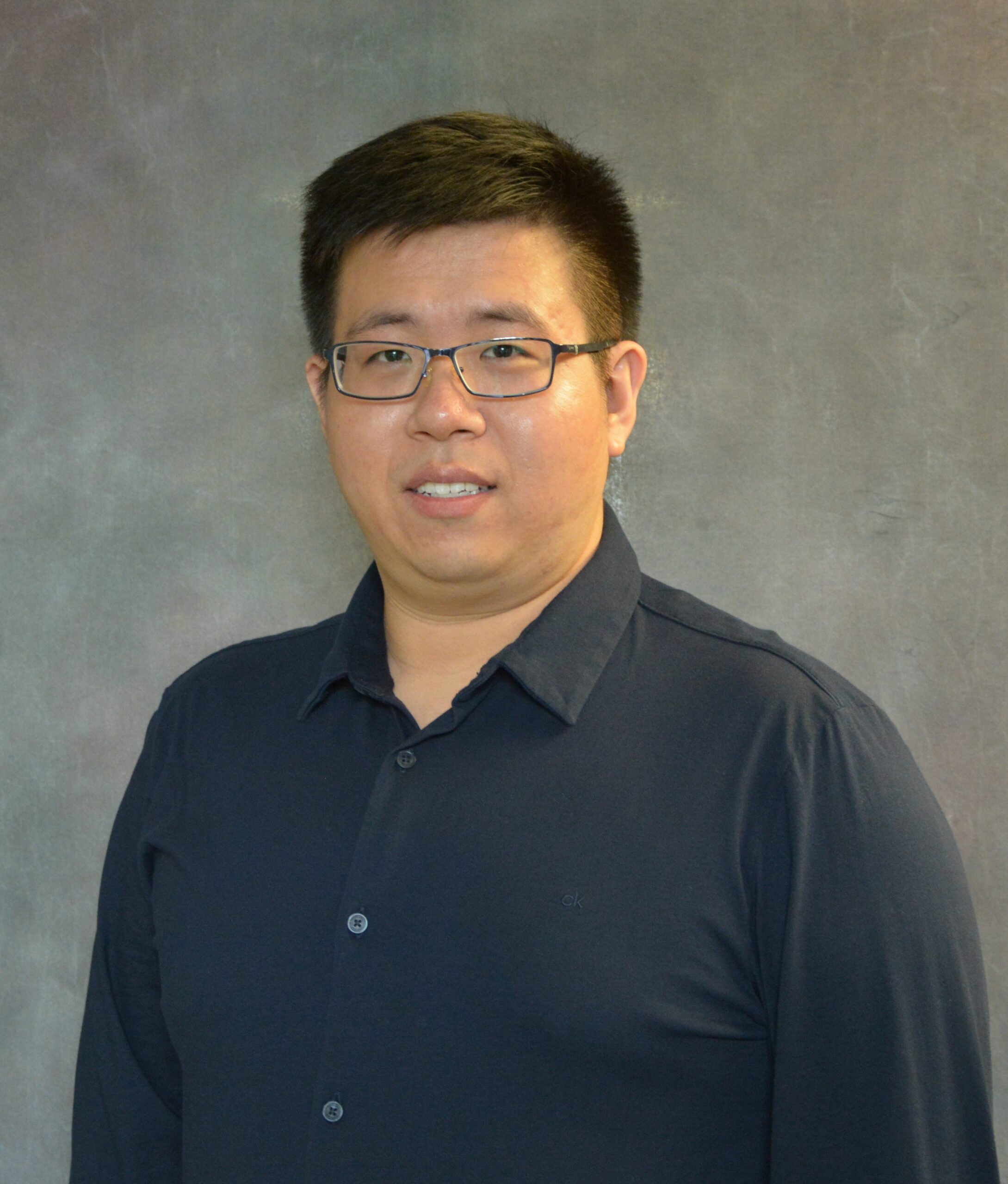
Zhaohui Geng
- Department of Industrial and Systems Engineering, Ohio University
Abstract
Digital twin, as a digital replica of the physical process or object, provides great flexibility and accessibility to enhance innovation and improve performance in modern manufacturing. With the increasing demand in high-mix, low-volume production, especially in high-value-added industries such as defense, aerospace, and energy, digital twin and digital transformation techniques could provide a technological backbone to increase the readiness and resilience of their production system, especially assisting small-and-medium manufacturers (SMMs) in getting involved in the supply chain. While great effort has been made during the past few years focusing on developing digital twin frameworks and models for advanced fabrication techniques, such as additive manufacturing (AM), the digital transformation for conventional manufacturing processes, i.e., casting and forging, is overlooked, which impedes the smooth integration of AM with these processes.
America’s Additive Foundry (AAF) is partnering with America Makes to set up this workshop, which focuses on incorporating digital twin and digital transformation technologies to enhance the resilience of the manufacturing supply chain. America’s Additive Foundry (AAF) Consortium is a coalition of entities with the goal of securing supply chains through additive, hybrid, and intelligent manufacturing to address the issues and concerns in conventional casting and forging; America Makes is a national accelerator and the nation’s leading collaborative partner for technology research, discovery, creation, and innovation in additive manufacturing and 3D printing. In this workshop, we will present the challenges and opportunities in integrating additive manufacturing and convergent manufacturing in the conventional casting and forging supply chain through digital twin and digital transformation technologies to enhance their readiness and resilience and discuss future trends in the technology development to further unlock the potentials of the supply chain using these techniques.
Biography
Dr. Jianzhi (James) Li holds President’s Endowed Professorship at The University of Texas, Rio Grande Valley. Professor Li received his Ph.D. in Industrial and Manufacturing Engineering from The Texas Tech University and his Bachelor of Science degree in Automotive Engineering and Master of Science degree in Manufacturing Engineering, both from Tsinghua University. Professor Li has more than 20 years of leadership and research experience in the areas of laser material processing, additive manufacturing, process modeling and optimization, logistics, and sustainable manufacturing. He has worked in the industry serving as chief technology director in IT and logistics fields. Professor Li is the Director of The Center for Advanced Manufacturing Innovation and Cyber Systems at UTRGV. He is the Founding Director of the DoD I-DREAM4D Consortium created on a DoD MEEP grant. The Consortium focuses on talent preparation for defense innovation leveraging research and education in additive manufacturing and smart manufacturing. Professor Li is also the Founding Director of a DOE/NNSA national consortium that supports additive manufacturing research for energy systems. Throughout his career, Professor Li has maintained a distinguished scholarly record and developed research and education programs that significantly benefit the institution and the manufacturing community.
Dr. Zhaohui Geng is currently an Assistant Professor in the Department of Industrial and Systems Engineering at Ohio University. He is an affiliated member of the Center for Advanced Systems and Transportation Logistics Engineering (CASTLE) and the Center for Advanced Materials Processing (CAMP). Before joining OU, he was an Assistant Professor in the Department of Manufacturing and Industrial Engineering at The University of Texas Rio Grande Valley. He led the Cyber Manufacturing and Smart, Connected Systems division at the UTRGV Center for Advanced Manufacturing Innovation and Cyber Systems. His research interests are in the areas of statistical machine learning, Bayesian optimization, and large-scale optimization, with applications in reverse engineering, additive manufacturing, 3D scanning and modeling, and healthcare systems. He is particularly interested in developing statistical/probabilistic machine learning algorithms and domain-specific knowledge graphs to solve quality and/or manufacturability-related problems at the intersections of design, metrology, advanced manufacturing, and production systems. Zhaohui was a Health Sciences Research Fellow in the Department of Neurological Surgery in the School of Medicine and received his Ph.D. in Industrial Engineering (2021), M.A. in Statistics (2018), and M.S. in Industrial Engineering (2016) from the University of Pittsburgh.
Workshop
Semantic Interoperability of Industrial Data using Ontologies
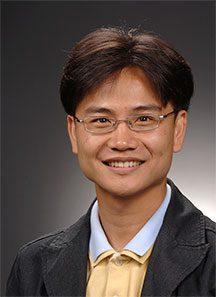
Boonserm Kulvatunyou
- National Institute of Standards and Technology, Engineering Laboratory, Systems Engineering Division

Dr. Gabriela Henning
- Professor, Institute for Technological Development of the Chemical Industry, Industrial Engineering Department, Universidad Nacional del Litoral, Argentina
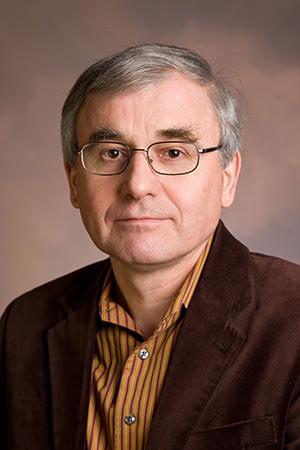
Dusan Sormaz
- Professor Emeritus, Department of Industrial and Systems Engineering, Ohio University, Athens, OH
Abstract
This workshop aims to present the state-of-the-art of the IOF industrial ontology suite in the context of various industries (discrete manufacturing, process industries, batch manufacturing, biomanufacturing). We will address current standard efforts and identify semantic gaps in those standards that the use of ontologies could help overcome.
For discrete manufacturing, we will explain intelligent manufacturing planning approaches toward the digital twin of product, process, and system. An overview of knowledge-based approaches will be followed by an introduction to production planning ontologies for selected manufacturing domains. We will demonstrate the application of ontology in resource capability evaluation, process sequencing, and material order processing.
Batch processes manufacture finite quantities of materials using ordered sets of activities over finite periods of time. The finite amount of material produced at the end of a given batch process is referred to as a batch. The initial aim of the ANSI/ISA-88 standard was to address batch process control issues in a systematic way; however, it obtained the major objective of decoupling information regarding equipment, product recipes, and control strategies. To achieve this goal, knowledge is organized along three different perspectives: the physical model, the process model, and the procedural control one. Currently, many batch manufacturers run their operations by observing the ISA-88 standard.
Though widely adopted in industry (specialty chemicals, pharmaceuticals, food products, etc.), the ANSI/ISA-88 standard has a series of semantic drawbacks that will be highlighted in this presentation. ANSI/ISA-95 model is another well-accepted industrial standard whose aim is the seamless exchange of information between levels 3 and 4 of the Purdue hierarchical model. An analysis of this standard also uncovers some semantic problems, which will be pointed out. Unfortunately, a joint analysis of the ISA-88 and ISA-95 standards reveals that if both are adopted in a given industrial setting, serious gaps, overlaps, and semantic problems might arise, which will be summarized in this presentation.
The workshop will conclude with a presentation about the Industrial Ontology Foundry (IOF) effort to develop reference ontologies for various industrial domains, such as production planning, supply chain, maintenance, product design, systems engineering, and others. The hub-and-spokes approach based on the Basic Foundation Ontology (BFO) provides a well-grounded ontological foundation and strong reasoning mechanisms to provide for the consistency of ontology terms within and across various domains. The current results in developing the IOF-Core ontology as basis for other reference ontologies will be presented. Presentations will be accompanied by use cases from a few domains under the IOF umbrella.
Biography
Dr. Serm Kulvatunyou is a computer engineer in the Process Engineering Group of the Systems Integration Division (SID) of the Engineering Laboratory (EL) at the National Institute of Standards and Technology (NIST). Dr. Kulvatunyou worked at Oracle before joining NIST in 2011. He was a Standards and Products Architecture for Oracle Applications Integration Solutions. There, he worked with engineers across middleware and several oracle applications to architecture the service-oriented implementation for A2A as well as B2B integrations. Dr. Kulvatunyou has been working with industry and research communities to improve the efficiency and effectiveness of systems integration and interoperability. He has been working with industry standard development organizations such OASIS, UN/CEFACT, AIAG and the Open Applications Group (OAG) to develop and improve standards for electronic business. He was the chief architect of the NIST/OAG/AIAG Inventory Visibility working group that developed new generation of communications and messages for vendor-managed inventory, automotive warranty claim, and semantic integration. Dr. Kulvatunyou published widely. He is a recipient of the 2007 SME Outstanding Young Manufacturing Engineer, 2007 AIAG Outstanding Contributor Award, and 2013 OAG Outstanding Contributor Award.
Dr. Gabriela Henning obtained a Chemical Engineering degree from Universidad Tecnológica Nacional, Argentina, and a Ph.D. degree from Universidad Nacional del Litoral (UNL), Argentina. She was a Postdoctoral Fellow at the Laboratory for Intelligent Systems in Process Engineering of the Massachusetts Institute of Technology. Currently Dr. Henning is a Full Professor at the Industrial Engineering Department of UNL. She also holds a Principal Scientific Researcher position at CONICET (National Council for Scientific Research and Development of Argentina). She presently does research activities at the Institute for Technological Development of the Chemical Industry (INTEC), which depends on both, CONICET and UNL.
Between September 2013 and September 2023, Dr. Henning was the Director of INTEC. She was also the Director of the Graduate Studies Program and Human Resources Formation Program of UNL (2004-2006), and the Head of the Department of Industrial Engineering of this University (2000-2004). She has organized several national and Latin-American graduate schools and workshops, and also served on the organizing and scientific committees of various national and international conferences. Dr. Henning presently serves on the Editorial Board of various scientific journals and on several evaluation and accreditation national boards.
Her research interests are in the areas of planning, scheduling, and rescheduling of batch, continuous and discrete manufacturing processes; supply chain modeling, optimization and evaluation; enterprise modeling and integration; product modeling within the framework of industrial information systems and industrial domain ontologies. She has authored more than 70 papers published in peer-reviewed magazines and book chapters and has graduated several Ph.D. students. In 2010 she was the recipient of the Gambrinus Fellowship award of TU Dortmund, Germany, for distinguished foreign Professors. She has been involved in consulting activities with several national companies and NGOs.
Dr. Dušan N. Šormaz is a Professor Emeritus of Industrial and Systems Engineering at Ohio University, Athens, USA. Dr. Dušan N. Šormaz’s principal research interests are in Ontologies, Simulation, Additive Manufacturing, Process Planning, Semantic Data Integration, and application of knowledge based systems in manufacturing. He has worked on research projects sponsored by NIST, Delphi Automotive, GE, MVESC, and major oil companies in the areas of manufacturing process planning, cost estimation, bus scheduling, and corrosion modeling and prediction software.
Dr. Šormaz has published over 40 refereed papers in scholarly journals and more than 160 conference papers and book chapters. He has also delivered 15 keynotes, workshops and tutorials and more than 50 contributed presentations at international research events. Dr. Šormaz has organized several international conferences (GT/CM Symposium 2003, ASME APSP Symposium 2006, IISE Manufacturing and Design Track 2016 and 2017, IISE Modeling and Simulation Track 2019). He was the General Chair of the 28th International Conference on Flexible Automation and Intelligent Manufacturing, FAIM2018 in Columbus and the Plenary Speaker Chair of International Conference on Production Research, ICPR25 in Chicago 2019. He is a member of the editorial board of the International Journal of Industrial Engineering and Management (IJIEM), he edited a special issue of International Journal of Production Research, and a special issue of Robotics and Computer Integrated Manufacturing (RCIM) Journal. He serves as regular reviewer for several research journals in his area of expertise. He also regularly advises student teams who participate in the Simio Student Simulation Competition. He has been a member of The International Foundation for Production Research (IFPR) Board since 2019. His student team received the 1st place among 220 teams from 11 countries in the Global simulation competition sponsored by Simio company held in May 2017. His graduate student team was a runner up in NIST/ASME RAMP competition held at ASME MSEC Conference in June 2017.
Dr. Šormaz has received the IISE Lean Division’s Lean Teaching Award in 2018. He was finalist for Presidential Teacher Award at Ohio University in 2017, and received multiple annual Marvin E. and Ann D. White Teaching Award and Marvin E. and Ann D. White Research Awards at Ohio University. He was a holder of Fulbright scholarship for graduate studies in the USA in early 1990-ties.
Dr. Šormaz received his Ph.D. degree in industrial and systems engineering and MSc. in computer science from University of Southern California, Los Angeles, CA, and MSc in industrial engineering and BS. in mechanical engineering from University of Novi Sad, Yugoslavia. He is senior member of IISE, senior member of SME, member of ASEE and member of Alpha Pi Mu – industrial engineering honor society.